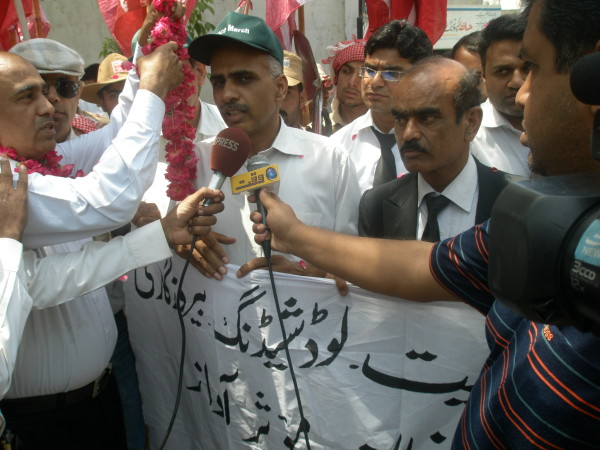It is difficult to wrap up this perplexing and transitional phase of 2013 in short as it was full of turmoil and new happenings. Overall this year of 2013 in Pakistan was a year of fears, anxieties, hopes and transitions because all top class positions such as president, prime minster, chief justice of Pakistan, chief staff of the army, all changed in one year. Positions changed but problems of the common men and women remained the same.
By Irshad Ahmad Mughal*
The scale of violence was the same as in previous years. Major top stories highlighted in both electronic and print media during the year of 2013 were: elections, appointment of prime minister, also of the chief staff army, chief justice of Pakistan, the clean up operation in Karachi to restore peace, the location of missing persons, terrorist attacks, drone attacks, sectarian violence, cross-border conflict on the India-Pakistani border, plus the new vision of newly appointed government officials and so on.
This year was also outstanding in terms of a cultural invasion by Turkish Drama Serials. Turkish influence is still small but rising rapidly and replacing the influence of Saudi Arabia.
Saudis Arabia is considered responsible for increasing sectarian violence (they support Wahabi and the Deo Bandi School of Thought – mostly Talibans) and the Turkish influence tends to diffuse this violence through modernity. This cultural influence indicates an influence shift from Mecca to Istanbul in Pakistan.
Conflict on the India-Pakistan border and cross fire incidents were also important events that played a dominant role in our media. This conflict ended with a cease fire and dialogue among top military officers but due to the newly emerging leadership of Narinder Moodi in India is not now considered a bright hope for the peace process in Pakistan.
Poverty, price hikes, load shedding problems of electricity supplies and Sui gas were major issues for the common men and women.
Overall, this year was a year of hope and dreams. Dreams of a new Pakistan with less violence and more stability was close to many Pakistanis. Indeed, things are improving but at slow pace.
Many new projects and initiatives were announced by provincial and national governments. In spite of conflicts and violence, things moved forward and things have improved. The situation of law and order has improved a lot.
After the elections of 2013, no single party emerged as the leading party in any province spite that the Pakistan Muslim League (N) is a government in federation. Different parties got majorities in different provinces. Pakistani Muslim League (N) got majority in Punjab: Thareek-e-Insaf got majority in Khayber Pakhtunkhwa; National Party got majority in Baluchistan and Pakistan People’s Party got majority in Sindh.
Overall, the Nawaz Sharif government preferred to settle conflicts with neighbours and invited them to initiative peace processes specifically, with India and Afghanistan. Pakistani relations with Iran have been ignored despite the gas pipeline project signed by the previous government. The role of China in Pakistani politics remain the same.
That, in brief, is a wrap-up of the important events taking place in 2013… and now for 2014!
* Chairman, Iraj Education & Development Foundation in Pakistan.










